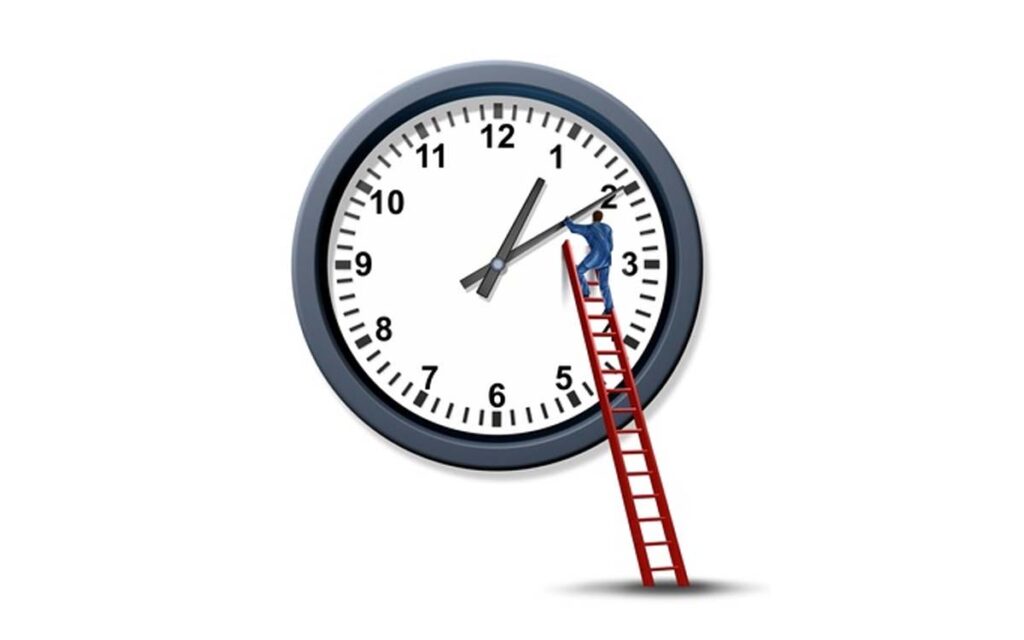You’ve probably heard the story of the professor who demonstrated the importance of prioritizing work by filling a jar with big rocks, and then asking his class if the jar seemed full. He then added gravel, then sand, and finally, water. The jar never overflowed. That’s because one of the key tenets to filling a jar—and productive time management—is to put the big rocks in first.
If you’re thinking about improving your day with productive time management strategies for managing work and prioritizing projects, you’re not alone. From waiting until the last minute to work on a presentation, to answering every email that comes in immediately, there are as many ways to bungle effective time management as there are forwarded videos.
7 Productive Time Management Tips for 2022
With some practice, the following time management tips can help you become more productive, creative—and successful.
1. Identify the big rocks first.
Every day, look for the two or three most crucial tasks that need to be completed. Put everything else aside until you’ve completed all, or most, of them. Accomplishing the most critical tasks in your day early on gives you the freedom to finish less important tasks later on. At the beginning of the week, write down what you think your most critical goals are. Dedicate the first hour of every day to putting those big rocks (most critical goals) in the jar!
Prioritizing tasks and focused time management help you get the most important work done on time.
2. Be mindful.
Distraction is the enemy of productive time management. When you’re getting started on your biggest rocks, silence your cell phone. Close unnecessary browser windows. Take a deep breath. Make yourself accountable for at least an hour of focused, mindful attention to your task. Set a timer if an hour is too long. Developing a habit of mindfulness can take time, but pays handsome rewards.
3. Get in your zone.
If your work time ends up as a half-hour of staring at a blank document and surfing the web, you’re not alone. Many successful professionals say that the number one enemy of their creativity is finding time and feeling inspired. (Creativity applies to developers and sales people just as much as it does to writers and designers.) Remember that inspiration is more likely to visit if the door is consistently open, and you show up for any resulting brilliance. Setting time management strategies to carve out time dedicated to creativity—no matter how unintuitive that sounds—will help you get in the zone faster. The more daily practices you create around setting mindful habits for doing your work, the more likely you’ll have successful results.
4. Create habits.
The best way to develop any habit around Time Management is through repetition. If a certain task makes your stomach seize or your mind wander, see if you can make that one of your biggest rocks for 90 days. Commit to just getting it done without any self-bargaining or distraction. Chances are, over the course of a week or two, your most dreaded task will morph into something more manageable.
5. Organize weekly.
The more you streamline your processes and lessen your distractions, the easier it will be to make time to concentrate, thinking strategically and be more creative. Take a few moments to unsubscribe from email lists you don’t want any more. File documents. Finish off those two-minute tasks, wipe down or clear off your satellite desk. Eat a snack if you’re hungry; make that long-delayed appointment. By eliminating unnecessary distractions (otherwise known as time-sucks) from your daily rounds, you’ll free up more mental space and increase focus on work that matters.
6. Let freedom reign.
However talented your DNA, even the brightest, boldest minds can get bogged down in the minutia of day-to-day tasks and duties. If you have a goal in mind (get promoted; finish writing a brief; develop a killer app), you need to allow for mistakes as well as successes. This translates into setting aside time every day or week to “just do it.” For an advertising writer, that might look like brainstorming tagline ideas without judgment or worrying about client protocols. For a software designer, that might be giving yourself permission to write some crappy code before getting it right. Knowing you have scheduled time to play makes less creative tasks easier to manage.
7. Let it go.
For the parent readers, this might get the Disney’s Frozen theme song stuck in your head. Apologies!
But in all seriousness, there’s a time for work and a time to play and rest. The analogy of the airplane oxygen mask is actually pretty apt here. You need to take care of yourself before you can truly shine at work! An important part of your ongoing responsibilities as a team member, manager or leader is to be as sharp and productive—and engaged—as you can. No one runs at 100 percent all of the time. That’s why time away from work is an important part of job performance—it re-energizes you. So, when you say you’re away from the office, really be away. The return on your investment will be well worth it.







